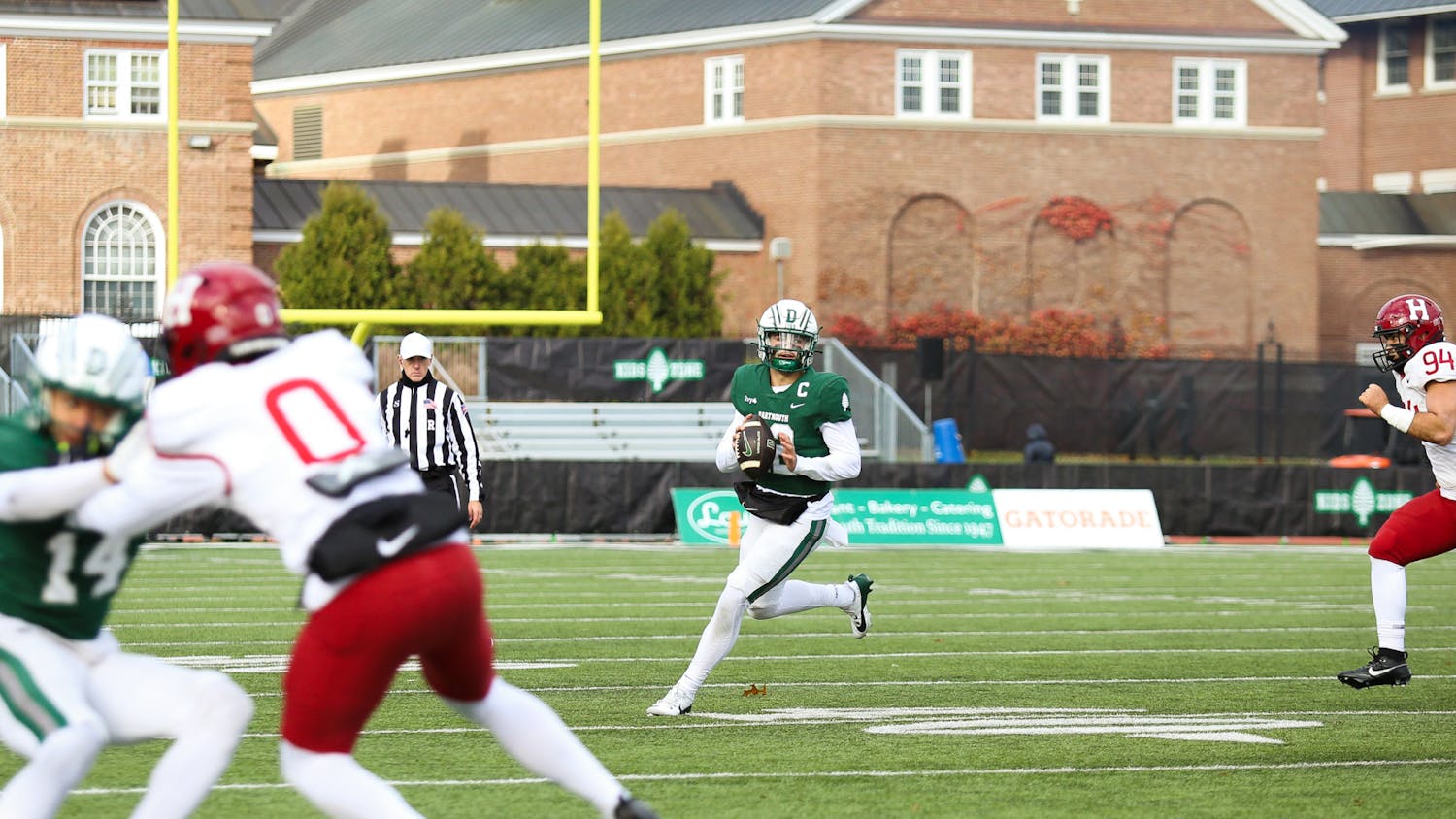A self study by a committee from the Athletic Department, chaired by Associate Director of Athletics Josie Harper, investigated the issue of gender equality in Dartmouth athletics and the new regulations are affecting teams differently.
The committee's report called for the Athletic Department to continue adjusting its programs to ensure equal treatment of male and female athletes.
Last year the committee submitted a report examining the policies and procedures of the Athletic Department. It was submitted to Athletic Director Dick Jaeger in April of this year.
The document detailed the findings of the 'gender equity study committee' and recommended a course of action to improve the equality of men's and women's athletic teams at Dartmouth.
It suggested that the Athletic Department should aim to have a number of varsity teams that reflect the gender proportions of the undergraduate student enrollment.
The report also examined the need for women's teams to have flexibility in scheduling to improve their chances for success and increase the visibility of the programs. Also considered in the report were travel abilities, tutoring, medical facilities, locker rooms, practice facilities and recruitment.
Some varsity teams have adjusted well to the new demands.
Men's and women's soccer coaches Bobby Clark and Steve Swanson repeatedly stated that the two teams have been close for a long time.
"We share everything," Clark said. "We do everything together. We coach together, run camps together, share game and practice fields. Yet we both have our own identities."
The move towards equality in athletics stems from Title IX, a law passed by Congress in 1972 which aims to eradicate gender discrimination in the area of physical education.
Title IX states "no person ... shall on the basis of sex, be excluded from participation in, be denied the benefits of or be subject to discrimination under any educational program or activity receiving Federal financial assistance."
Title IX does not require that the funding given to men's and women's teams be split equally, but it does require that it be fairly shared between the teams.
A large share of each team's budget is paid for by alumni donations. These donations used to be separate for each team but are now joint accounts. Most male teams are unsure how this new system will affect their donations.
Last spring there was friction between both rugby teams when the women's team demanded a share of money that had been donated to the men's team.
The money, given by Corey Ford '25 many years ago, was to be used in the construction of a clubhouse for the sport. Over the years the fund continued to grow but the club house was never built.
Now there are plans to build the clubhouse but there is no longer enough money in the fund. The further costs will be covered by both teams and the structure shared by all.
"We're in the process of raising money for the clubhouse," men's rugby president Mike Cicerone '94 said. Also, "the leadership of the men's and women's teams met last Friday and we decided to evenly split all 'Friends of' money."
The women's lacrosse team will enjoy a better spring trip this year due to the increased funding. In comparison the number of men on the spring trip will drop from last year's number of 32 to 23.
"The women's team receive the money they need to survive and we receive the money we need to succeed," men's lacrosse coach Tim Nelson said.
Presently both Brown and Cornell are involved in suits that have been filed in response to Title IX.
Cornell, facing a $1.6 million deficit, was forced to cut funding for four teams -- women's gymnastics, volleyball, men's golf and water polo. Those affected were 60 percent men and 40 percent women, which is roughly reflective of the composition of the student body. The women have filed a law suit against the college which is due to come to trial this March.



